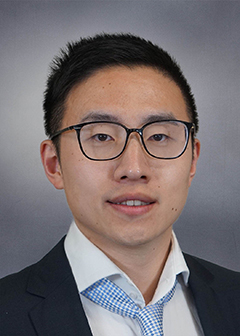
Assistant Professor
Department of Bioinformatics and Systems Medicine
Contact
[email protected] | 713-500-3462
Dr. Yulin Dai joined McWilliams School of Biomedical Informatics at UTHealth Houston in January of 2020. He has interdisciplinary training and nearly 10 years of bioinformatics and statistical genetics research experience.
He has long-term interests in understanding the etiology underlying human genetic diseases and answering biology questions by utilizing computational approaches. During his doctoral program, he focused on the application of the evolution theory to shed light on the biological insights in population genetics/comparative genomics. In his postdoc training in Vanderbilt University Medical Center, He worked with pediatricians as a bioinformatician to analyze the NGS data generated from rare disease families in the nationwide Undiagnosed Disease Network (UDN). Later, he joined the Bioinformatics and Systems Medicine Laboratory (BSML) in UTHealth as a postdoc, he focused on developing methods to infer the causative variants/genes in complex diseases. He developed statistical methods for systematically detecting the disease-relevant tissue- and cell-type for complex diseases. He integrated multi-omics data and performed network-based approaches to prioritize putative disease variants/genes in multiple complex traits, including congenital disease, autoimmune disease, and psychiatric disorders. Ultimately, he wants to understand the genetic implications especially disease-associated genetic alterations on their relevant cell-types.
His recent research interests is to develop novel methodology and application tools to better understand human complex disease, such as Alzheimer’s disease. His work spans various field, including single-cell omics, embedding perturbation, neuroimaging, GWAS, TWAS, and polygenetic risk score, by employing and developing statistical and machine learning approaches. In addition, he has established extensive collaborations in the field of bioinformatics within the Texas Medical Center.